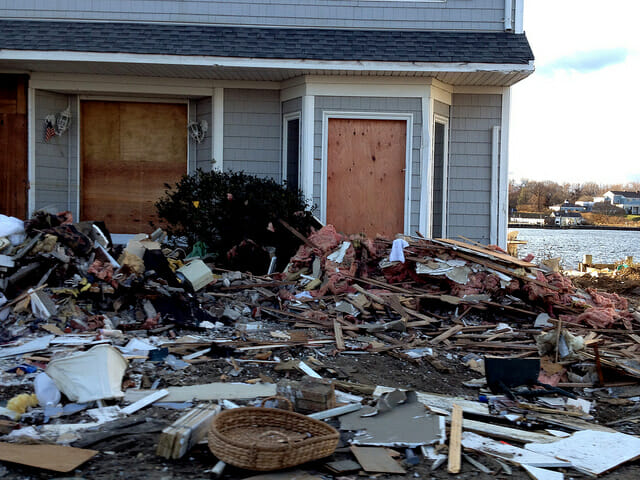It’s a fact that no matter where your business is located, it could be impacted by a natural disaster. Businesses located in the Western United States could experience earthquakes, mudslides, and wild fires. Those located on the Eastern Seaboard or Gulf States could experience hurricanes, and those in the Midwest could suffer from tornadoes and flash floods.
Most small business owners are too busy with the day-to-day running of the business to worry about protecting against a natural disaster. Thus they keep putting it off until tomorrow, and by then it might be too late. Here are a few easy steps that will save property managers time, money, and a whole lot of aggravation in the event of a disaster:
- Video your business. Include the outside, vehicles, equipment, inventory, supplies, offices, signs, and anything else that is important to your business. Talk about what you are filming so a FEMA, SBA, or insurance agent will know what was there before the event. Don’t forget to include who is making the video and the date. Store it in a safe or, even better, a bank. Don’t forget to videotape your home too.
- Read your insurance policy. Is it up to date? Are there any upgrades or improvements that need to be added? Are you covered for wind, flood, and fire? If changes are needed, make them as soon as possible and store it with the video. Include all documents that are important to your business: contracts, licenses, deeds, etc.
- Get contact and alternate information from employees. This will help get them back to business as soon as it is safe. Give them yours as well.
- Contact your local emergency management office or FEMA to get information on disasters that are pertinent to your location. With these facts in hand, formulate a plan to make the most of the time you have to prepare.
- Assign employees duties such as securing your hard drive and files, moving equipment to a safe location, covering windows, getting sandbags, etc. You both want to get home ASAP, so a well laid-out plan is every important. Keep it current to include new employees.
- Make a reciprocal agreement with a similar business so in the event you (or them) are out of service for a few days, customers will not suffer and revenue will not be lost. Is your business is one that customers depend on, such as home health care provider? If so, this is a vital step.
- Keep your generator in good working order, with enough gas to run 3 days at least. Remember to only run it in a well-ventilated place to prevent carbon monoxide poisoning.
- If you store chemicals that could be an environmental hazard or a pose a fire threat if the containers are damaged, meet with your local fire officials or OSHA at your business and show them where chemicals are stored so they will know what and how much you have. They may have suggestions for securing the product that could end up saving property and lives.
- When the “all clear” has sounded, be very careful who you contract to make repairs or remove debris. It’s a fact that disasters bring out unscrupulous and totally unqualified “contractors” who want to make a fast buck at your expense. Don’t allow yourself to be a victim again.
- Give your alarm company alternate contact information so they can stay in touch with you. Once an area has been effected by a natural disaster, it could be days or weeks before you are allowed to return, but please remember that emergency crews are doing all they can to secure the area (remove live wires, unstable trees, etc.) so you and your neighbors can return as quickly as possible.
The old saying is that “an ounce of prevention is worth a pound of cure” — and this applies to your business too. There is no time like the present to get ready for what Mother Nature may send your way tomorrow.
Read more on Maintenance

